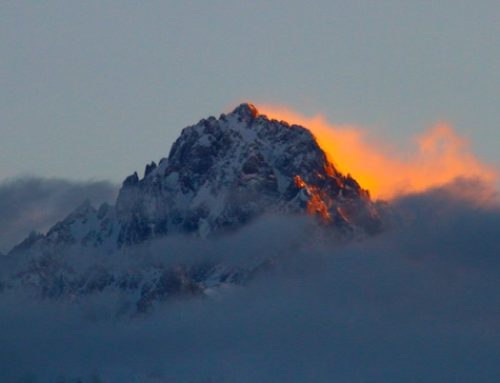He faced the mob of righteous zealots
Standing against a cold wind-driven rain
Relentless in their intent to shame
His rain-streaked face knows what the righteous don’t
His resolve stands with the certainty of timeless wisdom
In the moment the mob wonders
Is he confused, feeble, or just plain crazy?
Shamed many times before and yet he stands
Undaunted against the forces of ignorance
His scars like armor reveal the truth
The mob has chosen an easier path
To surrender themselves to the convenience of deceit
Their sentinel trolls smirk at the man of patience
Hunchbacked, revealing their spineless character
While he wields the power of time against expedience
His strength assured by the clarity of integrity
And the patterns in the sands of time
Pointing always toward the wisdom of patience
Against the hordes of the fashionable scions
He awaits that magical moment of revelation
As angels circle like a halo of reverence
The sky clears and only calm warmth remains
Time has its way, as it always does
Patience worn thin, but never bare
The dazed mob left staring at the spot the feeble man once stood
Only his divinity remained
~~~~~~~~~~~~~~~~~~~~
The ancients, sages, and prophets had many points of view and dispositions. Most lived unsettled and nomadic lives. Many were persecuted and some executed for what they believed. What they all had in common, however, was the courage of their convictions that survived the ages largely because of their most valuable virtue: patience.
They held and shared their convictions with a sense of undaunted perseverance. Regardless of what was popular and most often an easier path to take, they leaned into resistance whether in the form of a cold wind-driven rain, as employed metaphorically in the verse, above, or more direct ridicule.
In the past few years, we have individually and collectively endured plenty. In spite of their sense of moral virtue, many gave in to the impulse of expedience and joined the often-angry mob, while others chose to flee their commitments and obligations to wipe their slate clean; both attempting a different form of escape from civil and personal responsibility. Those who were steadfast in their sense of virtue and duty took their licks, often enduring periods of painful isolation. They remained—both in-place and in-virtue.
But the sun always rises again. Sunlight reveals and, as Supreme Court Justice Louis Brandeis suggested, is “the best of disinfectants.” In the moment of dawn, roaches and rats scurry for cover. Sunlight is always unwelcome to those with something to hide or who wish to simply conceal their shame (if they can even still feel shame). Those left standing, who have endured their lot with a sense of honor, are the ones we should quietly acknowledge if only with a mental note of admiration.
Spring is a time of rebirth and renewal, perhaps this year more than any in the last few years. It is also time for spring cleaning. Look around your life. It is time to take stock of those who stood with you in the cold wind-driven rain and those who took cover or ran. I expect you will find the number who stood relatively few, which at first may be disheartening, but it can also make life much easier moving forward if you actualize the opportunity. Now you know with whom to spend your time and energy.
One of the great lessons of life is knowing when to discard the practices and people that threaten your well-being. This may sound harsh and contrary to building your circle of friends and community. It may appear to violate your sense of empathy or inclusion. But, as the stoic Epictetus taught, “protect your own good in all that you do.” Do not allow your sense of moral virtue—your good—to be compromised by those whose selfish cowardice is their prevailing navigational beacon. After all, it’s okay to be empathetic toward yourself, too. You have no duty to those who succumbed to the convenience of deceit. Rather, your duty is to shield both your character and your soul from these nefarious influences.
Carpe diem. And, happy spring.
Note to those who read “Our Imagination Blindspot” (March 12, 2023). In this post I warned of the emerging technology of AI. I ran across an excellent examination of both the promise and threat of AI recently in the New York Times by Yuval Harari, Tristan Harris and Aza Raskin. It can be found, here. https://www.nytimes.com/2023/03/24/opinion/yuval-harari-ai-chatgpt.html






